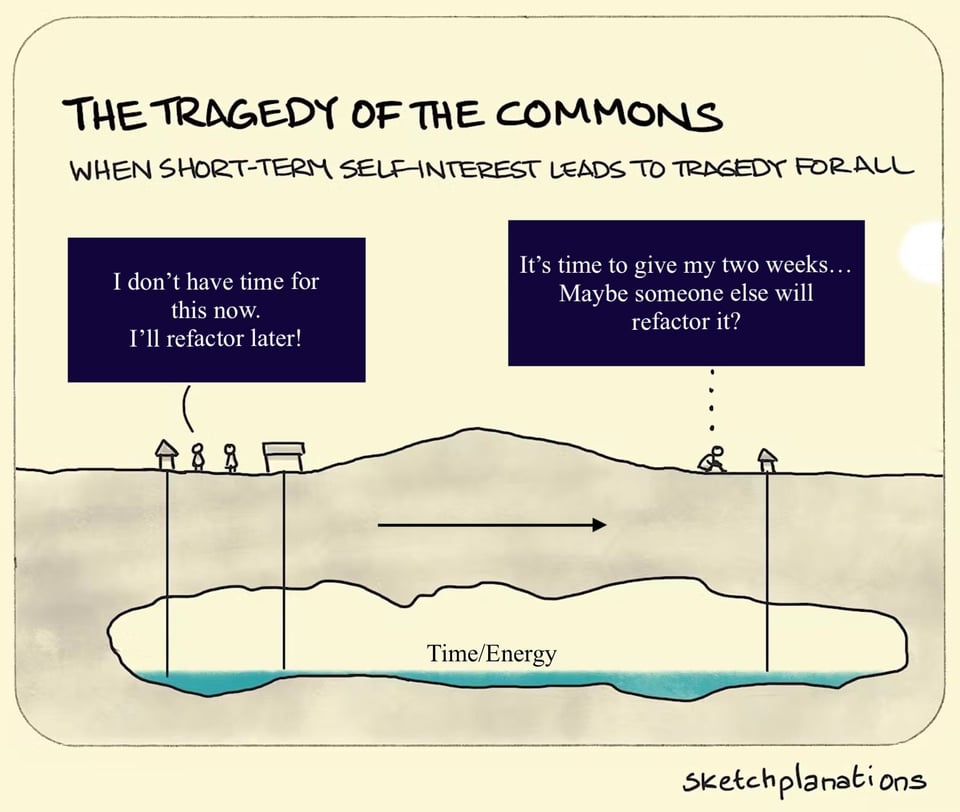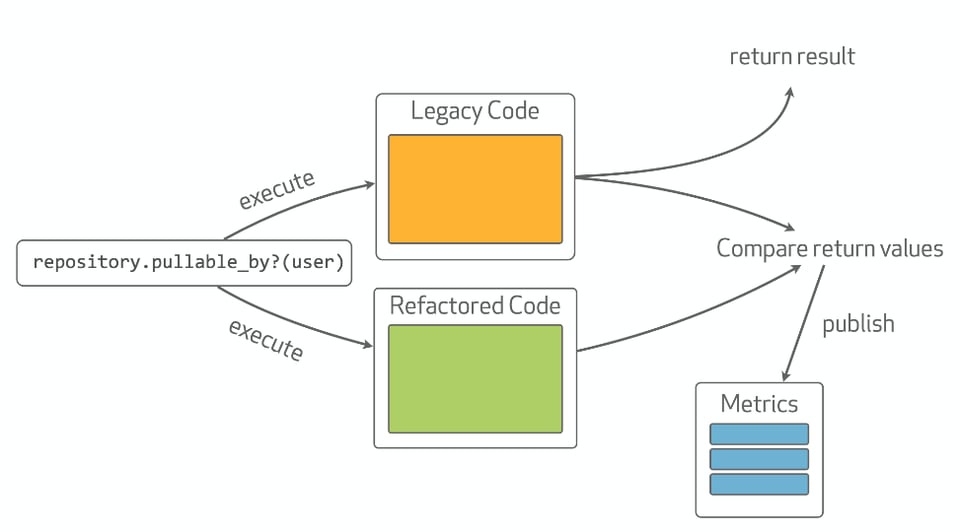Flounder Mode #4: Time, Effort, and Tragedy of the Commons
Fall is coming in full swing this week in Philadelphia, and just as the seasons can change, this newsletter can change! 💨🍂🦃
I’ve decided to switch up the format of the newsletter just a little bit, mostly to have a little more variety. There are so many thoughts and interesting things I want to share, and a little more breadth is never a bad thing.
Let me know what you think of the new format!
Topic of the week
Time, Effort, and Tragedy of the Commons (pub. 2022)

In 2022, I wrote a post that was motivated by a self-critique I had of myself. I felt like I wasn’t spending enough of my time working on the highest leverage task, and that I took the time of others for granted.
After a lot of reflection and advice from others, I realized that I have been chronically undervaluing my time, and that I should spend it in a way that was respectful of myself and others. Using the Tragedy of the Commons framework helped me rationalize why it pays to have a higher quality of work upfront, and not keep kicking certain cans down the road. This post is my effort to share that confession and framework with you!
An interesting excerpt I read
Moneyball by Michael Lewis
His answer began with a thought experiment: if a team had an on-base percentage of 1.000 (referred to as “a thousand”)—that is, every hitter got on base—how many runs would it score? An infinite number of runs, since the team would never make an out. If a team had a slugging percentage of 1.000—meaning, it gained a base for each hitter that came to the plate—how many runs would it score? That depended on how it was achieved, but it would typically be a lot less than an infinite number.
I’m currently in a baseball deficit after a mind-blowingly great World Series (in which my team won!) and I wanted to dive more into learning about baseball statistics to fill that void.
You probably have heard of the the movie Moneyball, in which Brad Pitt and Jonah Hill perform major baseball arbitrage through a nontraditional way of valuing players. The book is a deeper and more lore-accurate, and dives into the kinds of first principles they discovered about baseball through the lens of some serious sabermetrics.
That quote in particular I found interesting because it demonstrates how fresh eyes can pull out more elemental truths about anything, even if it’s a 100+ year old game. It wasn’t obvious to many in ~1999 that walks were WAY MORE VALUABLE than hits and runs, apparently 3 times more valuable! And it took a baseball outsider with an economics degree to figure that out.
A fun problem I worked on
We’re currently refactoring a rather hot and sensitive codepath at work, and one approach we’re trying out is to basically check out two branches: one control (usually the main branch), and one experimental branch.

Worth a read!
Then, we pipe all anonymized production data through each branch, with each branch yielding a result reflective of the changes in each branch. If there is no diff, then the refactor is safe to perform.
This is an idea that is very similar to what Github does with scientist, and a tool we used at Gusto called the audit-runner. We should always push for safer changes, and sometimes you have to use production-grade data to be extra, extra sure.
I will probably write about the Cocoon audit-runner somewhere down the line, if what we’re doing works well!
Ideas from around the web
I consume a LOT of web content and often find really cool ideas on the corners of the web. I’m going to try and share some of the neat or inspiring things I find in this newsletter going forward!
This week’s cohort of ideas:
An overview of Spotify engineering culture
My manager shared this with me at work awhile back, and I thought it was a great way of transparently showing how a large company chooses to run its EPD organization. The Spotify model is unique!
Roko's basilisk, aka yet-another-scary-AI-thought-experiment
I was watching a Black Mirror episode the other day, and in the episode they briefly mentioned this thought experiment, which I thought was a pretty scary idea!
Jesse Eisenberg on mastering your anxiety
This is a great YouTube video explaining how to use anxiety as fuel for accomplishing big projects. More importantly, hidden in this video is a good framing of why giving feedback to people (even highly senior people!) is very important for the good of any project.
And that’s all for this week, folks! If you have any feedback or comments, feel free to reply to this email. I would love to know your thoughts on this new format - I had a lot of fun writing it.
See you in two weeks! Take care until then.